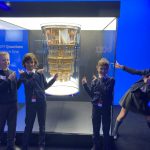Q-CTRL lands US grant for automated quantum tech

(Innovation.aus) Australia’s quantum pioneer Q-CTRL will significantly expand its presence in America thanks to a US government Small Business Innovation Research grant.
Q-CTRL was this week awarded $230,000 in funding through the US Small Business Innovation Research (SBIR) for a project looking at “automated calibration, characterisation and optimisation of near-term quantum processors”.
The Australian company will work with Sandia National Laboratories on the project funded through the SBIR, which is described as the US government’s seed fund, and focused on businesses conducting research and development in areas considered to be of strategic importance.
Q-CTRL chief executive Professor Michael Biercuk said the funding will allow the company to develop AI-based software capable of automating several processes used in operating quantum computers.
“Our team has already demonstrated how powerful AI can be in autonomously designing quantum gates – the building blocks of quantum algorithms – that outperform the best human designed alternatives,” Professor Biercuk told InnovationAus.
“Through this program we’re extending these successes by automating a wide range of processes across entire quantum computers. This funding award will enable our team to build on our successes and collaborate with the exceptional researchers at Sandia National Laboratories as we seek to deliver industry leading tools for quantum computer automation.
“It’s our ambition that Q-CTRL solutions become instrumental to the operation of every quantum computer in the industry, and this support through a high-profile US-based program is a key accelerant towards that goal.”



















